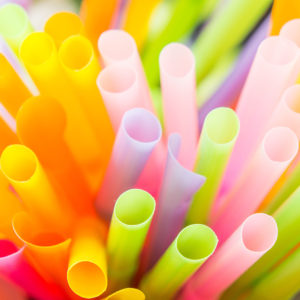The Trump Campaign recently released “Trump Straws” alongside their regular merchandise because “Liberal straws—like their ideas—don’t work.” Already they’ve sold $200,000-worth of products, which shows the public backlash as people don’t see plastic straw bans as an effective way to save the environment. If environmental protection is the goal, a much better policy to reduce the use of plastic straws would be to tax them.
Since Seattle became the first city in 2018 to ban plastic straws, other cities have followed suit. Activists have used plastic straws as an icon for pollution in our oceans, despite only .02 percent of all pollution being from plastic straws. Plastics like food wrappers, which have 1 million more articles in the ocean, and others are much more prevalent, yet we haven’t waged a war on them.
Currently, out of all the pollution that ends up in the ocean, only 1 percent comes from the U.S. The majority comes from East Asia and Africa. Clearly, if environmental worries are a concern, plastic straws are the wrong focus.
In fact, sometimes trying to avoid plastic straws can produce even more waste than initially intended. The Reason Foundation found that Starbucks, in an attempt to “go green,” stopped producing plastic straws—only to use more plastic in their lids. In total, they calculated Starbucks added between .32 and .88 extra grams of plastic to each drink.
Policymakers pushing for plastic straw bands have also ignored other unintended consequences. Disabled people suffer from these bans as they rely heavily on their versatility. An NPR article shows how challenging it can be for people with mobility challenges who depend on plastic straws to drink. Paper or metal straws, while seeming like a viable solution, don’t fit the bill, as paper straws dissolve too quickly and metal ones can be hazardous for others.
Perhaps the ones hit the hardest are small family-owned restaurants. While plastic straws can cost half a cent each, paper straws can be five to ten times more expensive. Deb Kruse, a former park ranger, knows the importance of reducing plastics but notes the costs to restaurants. While a regular box of straws can cost $4, the same amount of paper straws can go for 30 dollars. Kruse comments, “That’s a huge difference and as a small business that is not do-able.”
In the food service industry, every penny matters as most restaurants survive on a 4-6 percent profit margin and 60 percent don’t survive their first year in business.
Ongoing plastic straw bans are both silly and ridiculous as people, businesses, and the earth don’t see the rewards. While the intentions are good, the policy implications don’t pan out and cause more harm than good.
Instead of outright bans, cities and states can implement plastic straw taxes which capture the pollution effects and reduce use while also keeping plastic straws available for people who want them. For example, Chicago tried to implement a plastic bag ban until it realized stores were simply making plastic bags thicker to avoid the “single plastic bag” regulation. In 2017 they implemented a plastic bag tax which resulted in a nearly 50% reduction in plastic bag use.
The Trump straws made the point loud and clear: plastic straw bans are ineffective. People should have the option to use plastic straws because they provide a real value and people were willing to pay top dollar to send that message.

